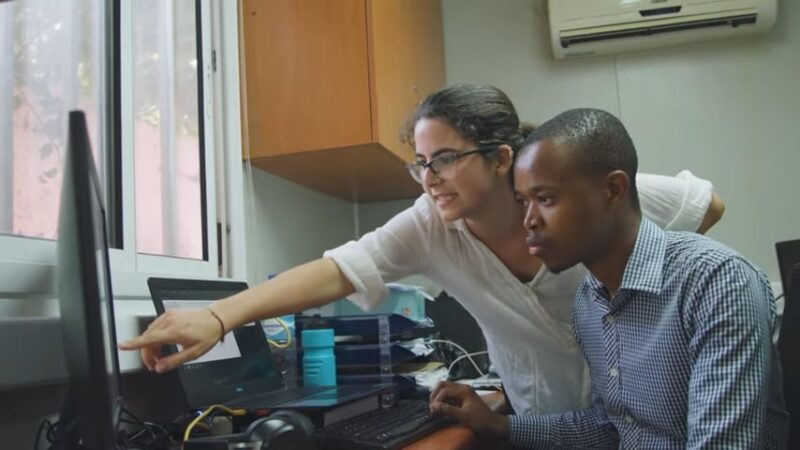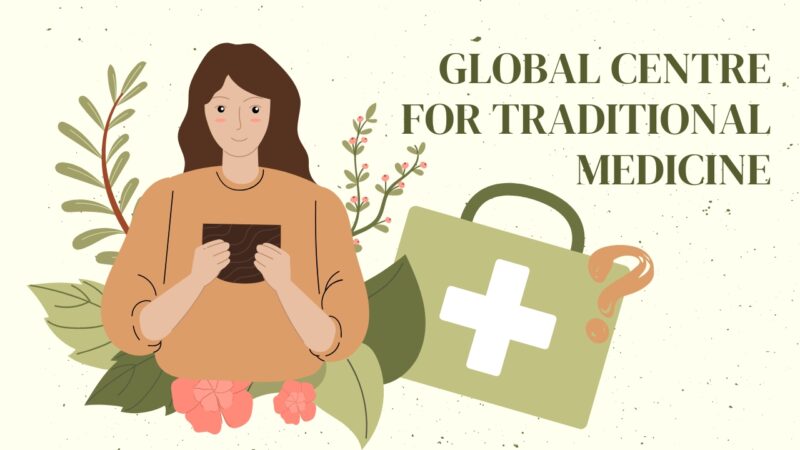The ever-evolving field of healthcare continuously welcomes new developments that aim to foster global well-being. An intriguing player in this sphere is the Global Centre for Traditional Medicine (GCTM). This post will delve into the depths of the GCTM, exploring its creation, aims, key contributions, and potential influence on the future of healthcare. By the end, you’ll have a clear understanding of the pivotal role this organization plays in integrating traditional medicine into global health practices.
The Essence of the GCTM
The GCTM was established with the aim of weaving traditional medicine systems into the fabric of global healthcare. But what does this mean exactly? In this section, we’ll explore the organization’s background, primary goals, and foundational pillars.
The Genesis
The GCTM was an initiative birthed by the World Health Organization (WHO) in conjunction with the Government of India. Its conception aimed to address a growing interest in traditional medicine across the world.
The WHO has long recognized the importance of traditional medicine as a pillar of many healthcare systems, particularly in low-resource settings. Thus, when India offered to host a global hub focusing on the promotion and integration of traditional medicine, the WHO accepted eagerly. The GCTM, therefore, represents an institutionalized effort to harness the power of traditional medicine to enhance global health.
The center’s establishment was an attempt to centralize the exploration of traditional medicine, create research frameworks, and provide robust scientific evidence to underpin its usage. Its foundation was not just a nod to cultural richness, but also a move towards diversifying healthcare options for global populations.
Core Aims and Objectives
The GCTM is not merely an organization. It’s an embodiment of aspirations for a healthier, more holistic world. To understand its core aims and objectives is to grasp the essence of its existence.
- To harness the potential of traditional medicine for public health by developing and implementing its policies and programs
- To encourage evidence-based research, information sharing, and documentation of practices
- To provide technical support and capacity-building initiatives
- To promote the integration of traditional medicine into national health systems in line with the WHO Strategy 2014–2023
These ambitious objectives exemplify the center’s commitment to solidifying the position of traditional medicine in global healthcare.
The Scope of Traditional Medicine

Before diving further into the GCTM’s endeavors, it’s essential to comprehend what ‘traditional medicine’ encapsulates. Understanding its variety and potential benefits can provide a foundation for appreciating the center’s work.
Traditional medicine also referred to as indigenous or folk medicine, signifies the knowledge, skills, and practices based on theories, beliefs, and experiences indigenous to different cultures. These practices are used to maintain health, prevent, diagnose, and treat physical and mental illnesses.
Traditional medicine systems span a diverse range, including Ayurveda, traditional Chinese medicine, Unani, Siddha, homeopathy, and numerous other regional practices. They can encompass various modalities, such as herbal medicines, manual techniques, exercises, and dietary practices.
These systems represent centuries of accumulated knowledge and practice, and have been passed down from generation to generation. They are deeply interwoven with people’s beliefs, and often form an integral part of their cultural identity.
The Value and Benefits
The relevance of traditional medicine is vast and multilayered. Here are some reasons why its integration into mainstream healthcare holds significant value:
- Cultural Significance: It is an integral part of many communities’ cultural heritage, embodying their history, beliefs, and wisdom. Recognizing and integrating these systems can empower these communities and preserve their cultural legacy.
- Accessibility: It can be more readily available and affordable than conventional medicine, especially in remote or resource-poor settings. This makes it a critical part of healthcare accessibility.
- Holistic Approach: Many traditional medicine systems take a holistic view of health, considering the individual’s mind, body, and spirit. This approach can complement modern medicine’s often segmented perspective.
- Biodiversity Conservation: Many traditional medicine systems rely on local flora and fauna. Therefore, their preservation can also contribute to biodiversity conservation.
Key Contributions of the GCTM

Since its inception, the GCTM has been at the forefront of promoting and integrating traditional medicine into the global health scene. Let’s delve into some of its key contributions to the field.
Encouraging Research and Development
One of the GCTM’s central aims is to foster research and development in the field of traditional medicine. By doing so, it seeks to provide a scientific basis for these practices, ensuring they are safe, effective, and can be integrated with modern healthcare practices. Here are some ways it has facilitated this:
- The center has funded numerous research projects on various aspects of traditional medicine, from efficacy studies to ethnobotanical surveys.
- It has developed guidelines for the proper documentation, validation, and dissemination of traditional medicine knowledge.
- It has facilitated the creation of networks and partnerships among researchers, practitioners, and policymakers in the field of traditional medicine.
Enhancing Capacity and Promoting Collaboration
In addition to fostering research, the GCTM also focuses on building capacity in the field of traditional medicine. This involves training healthcare professionals, promoting educational initiatives, and facilitating international collaboration.
- It has established and supports training programs in various aspects of traditional medicine for healthcare professionals.
- It promotes the inclusion of traditional medicine in medical and public health education curricula.
- It encourages cross-cultural exchanges and cooperation among traditional medicine practitioners and institutions across the world.
Through these initiatives, the GCTM is not only helping to validate and formalize traditional medicine practices, but also creating a global community of practitioners, researchers, and advocates dedicated to promoting these systems for better global health.
The Future: GCTM and the Global Health Landscape

As the GCTM continues to make strides in promoting traditional medicine, what does this mean for the global health landscape? This section considers the potential influence of the center on the future of healthcare.
The Promise of an Integrated Health System
The GCTM’s work promises a future where traditional and modern systems of medicine coexist and complement each other. By validating traditional practices through scientific research and promoting their integration into national health systems, the GCTM paves the way for a more holistic and inclusive healthcare paradigm.
Imagine a future where an Ayurvedic practitioner’s knowledge is respected alongside a conventional doctor’s expertise. Or a healthcare system that seamlessly integrates herbal remedies with modern pharmaceuticals. This is the future that the GCTM strives to realize.
Challenges and Prospects
As with any ambitious venture, the GCTM’s journey is not without challenges. These include the need for rigorous validation of traditional practices, potential resistance from conventional medical communities, and the task of ensuring that the promotion of traditional medicine does not lead to the overexploitation of natural resources.
However, the GCTM’s progress so far indicates that these hurdles are surmountable. The path ahead may be complex, but the potential benefits — a more diverse, inclusive, and holistic global healthcare system — are surely worth the effort.
Closing Thoughts
The GCTM represents a beacon of hope in the complex world of healthcare. As it champions traditional medicine, it seeks not just to recognize the value of these ancient systems but to create a world where they sit shoulder to shoulder with modern medicine, offering a comprehensive approach to health and wellness.
The GCTM, through its significant strides, is bridging the divide between tradition and modernity. By encouraging research and development, enhancing capacity, promoting collaboration, and advocating for the integration of traditional medicine into national health systems, the organization is unlocking a new realm of possibilities for healthcare across the globe.

